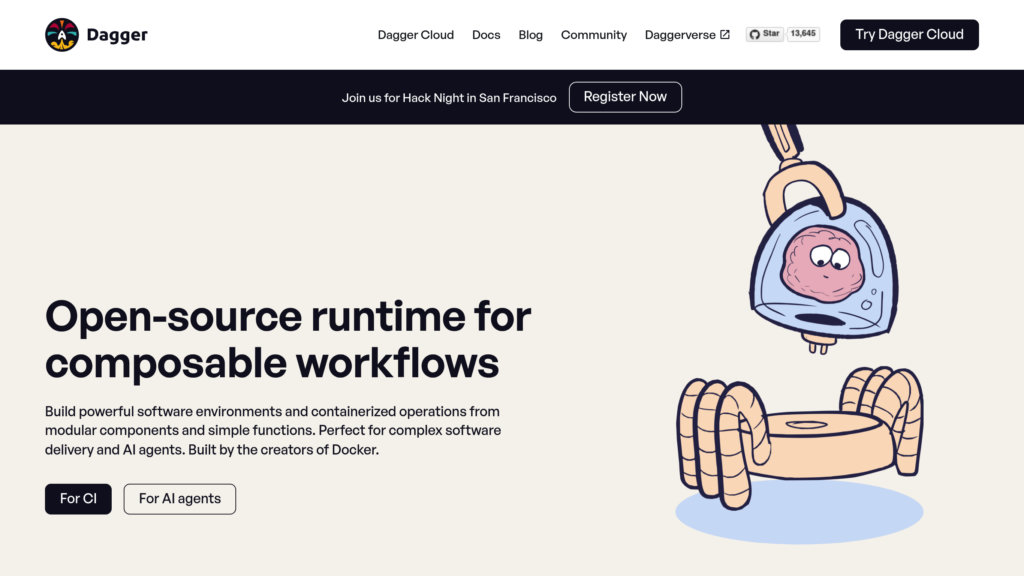Dagger
Open-source container workflow engine with modular design for cross-platform repeatability
Introduction
What is Dagger?
Dagger is an open-source solution for constructing and managing composable workflows by converting your code into containerized tasks. It shines in settings that demand high levels of repeatability, modular design, and transparency, making it a top choice for intricate systems such as AI agent frameworks and continuous integration/deployment (CI/CD) processes. Dagger works with various programming languages and effortlessly connects with any computing environment, empowering developers to build repeatable, scalable workflows complete with integrated caching, performance tracing, and live debugging capabilities.
Key Features:
• Containerized Workflow Execution: Converts code into isolated, container-based operations that are composable and executable in any programming language or setting, supporting parallel processing and sequential chaining for reliable, reproducible results.
• Universal Type System: Facilitates type-safe integration and smooth interoperability across diverse programming languages and platforms, eliminating the need for complex translation layers.
• Automatic Artifact Caching: Stores unchangeable outputs from operations, including those generated by LLMs and external API calls, to accelerate subsequent runs and lower operational expenses.
• Built-in Observability: Delivers extensive tracing, log records, and performance metrics for complete insight into workflow execution, simplifying debugging and optimization efforts.
• LLM Augmentation: Seamlessly incorporates any large language model, automatically detecting and utilizing available functions to construct smart agents with minimal coding effort.
• Interactive Terminal: Provides a live command-line interface for instant prototyping, validation, and troubleshooting of workflows directly from your terminal.
Use Cases:
• CI/CD Pipeline Automation: Develop portable, consistent continuous integration and deployment pipelines that operate uniformly across various environments and CI providers.
• AI Agent Development: Assemble modular AI agents by combining LLMs and other elements into workflows that are straightforward to expand and troubleshoot.
• Complex Workflow Orchestration: Oversee workflows with numerous interdependent components that require strict repeatability and monitoring, such as integration test suites and data transformation pipelines.
• GPU-Accelerated Tasks in Pipelines: Delegate GPU-intensive tasks to remote compute resources on an as-needed basis, optimizing cost-efficiency and resource allocation within containerized workflow environments.
• Cross-Language Development: Utilize the universal type system to effortlessly combine modules written in different programming languages.
